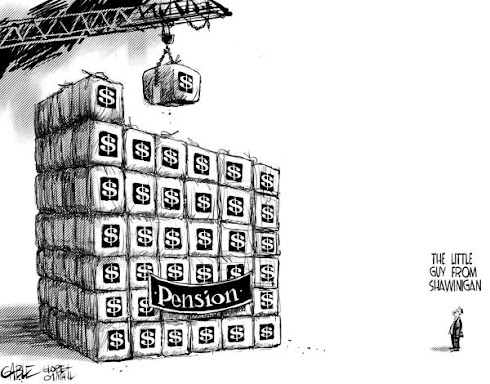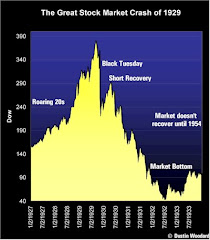
As the financial crisis worsens some public figures are stepping up to reform the system. It may be an impossible task but is essential to economic recovery.
All world citizens are faced with the same challenges in this financial crisis.
The Governor of the State of Rhode Island made a speech that will be instrumental in addressing the problems of the system.
Complete Text: State of State Address "In the midst of all the economic turmoil, tonight Id like to start out with
some uplifting stories.
First, what we need to do to get through this economic downturn. Second, how we better position our state for the future. And third, what we have already done to put in place the building blocks to create a stronger and more competitive.
First, we must strengthen our safety net for our most vulnerable citizens
we must reform our public employee pension and benefit plans so that they are fair and equitable, affordable and sustainable. And third, we must slow the rise of local spending by giving our mayors and town councils the ways and means to control spending and balance their budgets without raising property taxes.
I know that our proposed changes are difficult ones, and I know there are many critics.
But, the only alternative we hear from the special interests and lobbyists is raise taxes, because, they cant get by on less.
We need every department of every city and town to sharpen their pencils, tighten their belts, and be smarter about how they spend the taxpayers money! We need the unions to realize that our cities and towns cannot afford business as usual-they cannot afford the wages, the pensions, the health care, and the work rules that were bargained for. The world has changed dramatically. The cost of defined benefit pension plans and healthcare have spiraled out of control.
These costs are crushing our taxpayers - most of whom dont have such pensions and health benefits. This is not about picking on anyone-rather this is about picking up the burden together, for the sake of our children, our seniors on fixed incomes, and those truly dependent upon us. This is about pulling together to get us through this severe downturn.
Were not alone in this! Connecticut and Massachusetts are facing multi-billion dollar deficits.
California has an unemployment rate of 9+%, and a $45 billion deficit. Governor Schwarzenegger has declared a fiscal state of emergency. They are out of money!
They're postponing tax refunds, college tuition payments and requiring state employees to take 2 unpaid days off each month. We cant let this happen in Rhode Island.
I encourage every public employee union to sit down with the mayors, town managers, the city and town councils, and the school committees to become a part of the solution. Help your communities get through this! Some have already stepped forward and I thank them.
Our immediate challenge in the next few months will be to use the anticipated federal stimulus money wisely and sensibly. We must use the additional funding to bridge the deficit, support tax relief and structural reforms, grow jobs, and grow our economy.
Today, the pressing issue is growing jobs in those sectors of the economy that will bring money and investment to our state.
To illustrate why our state continues to be so vulnerable to economic downturns, I want to share a chart with you! In 1978, Rhode Island had 137,000 jobs in manufacturing which represented 34% of the entire workforce-today we have 46,000 representing under ten percent of the workforce.
I want to repeat that. The state has reduced employment by 25 percent, while the cities and towns have increased employment by 38 percent.
Ladies and gentlemen, thats why your property taxes are so high and keep rising. Thats also why it is so imperative that we find ways to consolidate services, and reduce the burden on our economy and our taxpayers. Government services consume our economy's resources --- they don't create them!
The competition, among states and countries for companies and jobs is intense. There are many factors that go into a company's decision about site selection-available workforce, energy costs, site readiness, over-all business climate, and, yes, taxes. We have been working hard on the first four - but now we need to make significant changes in our tax competitiveness.
Im tired of people writing stories about R.I. being tax hell, or ranked near the bottom in business tax competitiveness. We need to reverse the trend on that chart with bold, business friendly tax reforms.
I am firmly convinced that if we dramatically change our tax structure, our economy will produce jobs! What Rhode Island needs now is more taxpayers; not more taxes. This will only come from a tax policy that says to our business community, stay here and grow your business, and by the way, tell all of your out-of-state business friends that R.I. is a great place to do business. I want to send a loud signal that - R.I. is open for Business!!!!"
It will be a challenge indeed for all political leaders. Many cannot rise to the challenge but my hope is that those who do will be an example for others.






